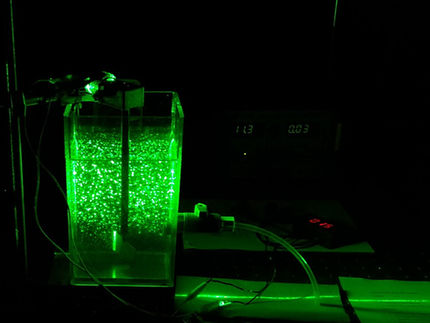Composite material for water purification
Removal of multiple contaminants from water by supported ionic liquid phases
Fresh, clean water coming directly from the tap is a true luxury. In developing countries, people often have no choice but to use a contaminated river for drinking water. water filters can help by quickly converting polluted surface or ground water into safe drinking water. In the journal Angewandte Chemie, researchers have now introduced a novel multifunctional composite material that removes inorganic, organic, radioactive, and microbial impurities from water.

© Wiley-VCH
Usually, water purification involves a series of filters, each designed to remove a single type of impurity. In contrast, this new filter material is an all-rounder. Scientists from the Universities of Ulm (Germany) and Zaragoza (Spain) have now seized upon a relatively new approach for designing materials, which allows molecular components to be assembled into multifunctional composites called SILP materials (supported ionic liquid phases). An ionic liquid is a salt that is melted at room temperature, making it liquid without being dissolved in a solvent. When such an ionic liquid is adsorbed onto a solid substrate it forms a solid composite material with properties that can be selectively tuned through chemical modification.
The researchers led by Scott G. Mitchell and Carsten Streb have now produced the first SILPs based on polyoxometallates (POM). POMs are molecular transition metal-oxygen clusters in which the metal atoms are bridged by oxygen atoms to form a three-dimensional network. For the new filter materials, they selected polyoxotungstate anions. These anions have a binding site which can trap heavy metal ions. The counterions they selected are voluminous tetraalkylammonium cations known for their antimicrobial effect. The resulting ionic liquids are hydrophobic, immiscible with water, and form stable thin layers on surfaces. By using a porous silicon dioxide support, the researchers obtained dry, free-flowing powders that are easy to transport and handle.
In laboratory experiments, the anions of the new composites reliably removed lead, nickel, copper, chromium, and cobalt ions. Radioactive uranium in the form of UO(2)(2+) was trapped directly by the silicon dioxide support. Similarly, the water-soluble blue trityl dye commonly used in the textile industry was also removed as a result of the lipophilic character of the ionic liquid. The antimicrobial cations effectively halt the growth of E. coli. bacteria.
The researchers hope that their new "POM-SILP" filter materials will form the basis for the development of contaminant-specific chemically designed filter systems that can be used for the reliable purification of water in remote areas and developing nations, as well as after natural disasters and chemical accidents.
Original publication
Original publication
Sven Herrmann et al.; "Entfernung von organischen, anorganischen und mikrobiellen Schadstoffen aus Wasser durch immobilisierte Polyoxometallat-ionische Flüssigkeiten (POM-SILPs)"; Angewandte Chemie; 12 January 2017
Topics
Organizations
Other news from the department science
These products might interest you
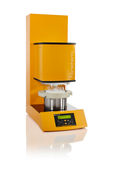
FIBRETHERM by C. Gerhardt
Automatic Fibre Extraction for Feed Analysis
FIBRETHERM from C. Gerhardt: Efficient – Precise – Method-Compliant
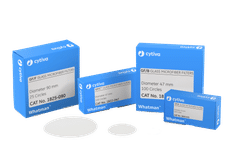
Glass and quartz microfiber filter by Cytiva
Request a glass microfiber sample pack to meet your battery development needs
Delivering efficient and consistent results
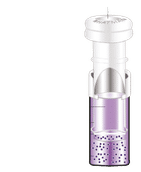
Mini-UniPrep™ by Cytiva
Improved HPLC Sample Preparation
Save 66 % sample preparation time and reduce costs by 40 %
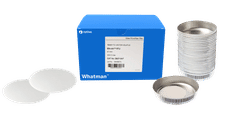
GF/C and 934-AH RTU (Environmental) by Cytiva
Meet wastewater regulations with the right filter
Streamline lab operations and ensure high-quality results
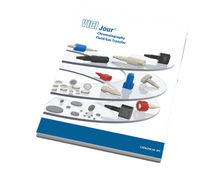
VICI Jour Katalog 15INT by VICI
The VICI Jour Catalog - Accessories for (U)HPLC and Liquid Handling
Capillaries, Tubing, Fittings, Filters, Safety-Products, Tools and much more
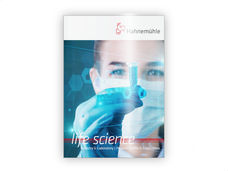
Hahnemühle LifeScience Catalogue Industry & Laboratory by Hahnemühle
Wide variety of Filter Papers for all Laboratory and Industrial Applications
Filtration Solutions in the Life Sciences, Chemical and Pharmaceutical Sectors
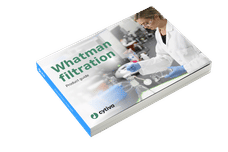
Whatman filtration product guide by Cytiva
New filtration catalog - a wealth of information on 286 pages
Discover the perfect filters for your laboratory application

Get the chemical industry in your inbox
By submitting this form you agree that LUMITOS AG will send you the newsletter(s) selected above by email. Your data will not be passed on to third parties. Your data will be stored and processed in accordance with our data protection regulations. LUMITOS may contact you by email for the purpose of advertising or market and opinion surveys. You can revoke your consent at any time without giving reasons to LUMITOS AG, Ernst-Augustin-Str. 2, 12489 Berlin, Germany or by e-mail at revoke@lumitos.com with effect for the future. In addition, each email contains a link to unsubscribe from the corresponding newsletter.
Most read news
More news from our other portals
Last viewed contents

WACKER Expands Production Capacity for Specialty Silicones in Asia - Asia is already one of WACKER’s most important sales regions
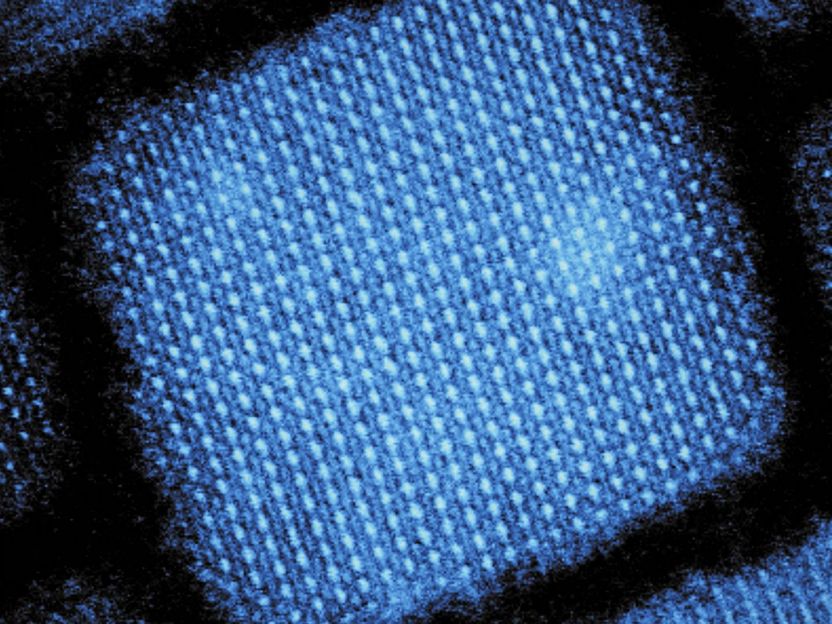
Extremely bright and fast light emission
Donald_Mackay_(scientist)

